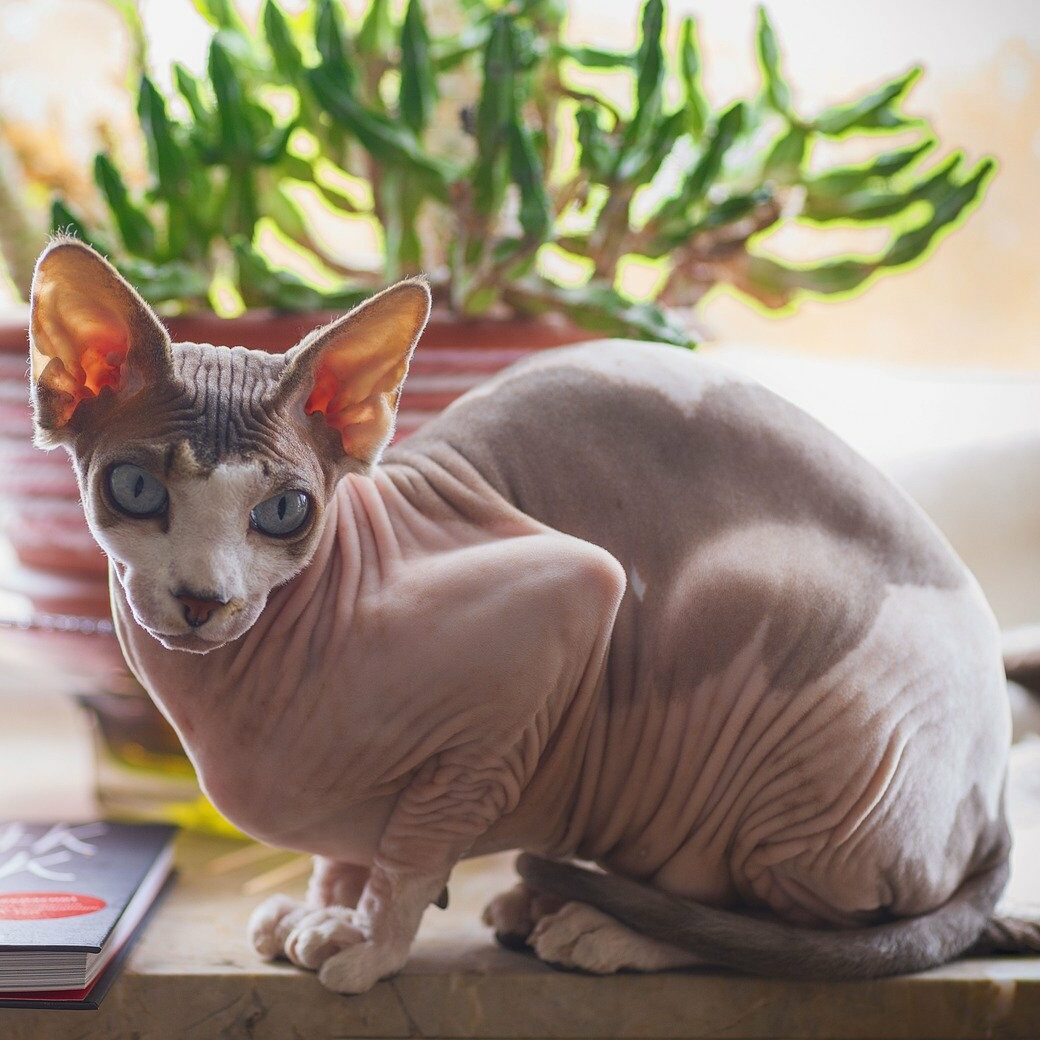
The main characteristic of the sphynx is that it has no fur. However, it does not mean that it is completely hairless, but that it is covered in a layer of fine hair very similar to peach skin. This cat does not have whiskers or eyelashes.
Summary
Origin and History
The Sphynx breed originated in Canada in 1966, resulting from a natural genetic mutation that led to the birth of a hairless kitten named Prune. This sparked interest among breeders to develop a hairless breed through selective breeding programs. The breed was further refined by incorporating genetic material from other breeds, including the Devon Rex, to ensure a diverse gene pool and robust health. Today, the Sphynx is celebrated for its unique appearance and is a beloved pet in many households around the world.
Physical Characteristics
The Sphynx is medium-sized with a muscular build, known for its wrinkled skin and lack of fur. Its body is warm to the touch, compensating for the absence of a fur coat. The breed features large ears, lemon-shaped eyes, and a whip-like tail, contributing to its distinctive appearance. Another notable characteristic is its pot belly, often likened to that of a little Buddha. Despite the absence of fur, Sphynxes require regular grooming to remove body oils and prevent skin problems.
Personality and Temperament
Sphynxes are highly social, energetic, and loving cats. They thrive on human interaction and are known for their playful and mischievous nature. This breed is often described as dog-like due to its loyalty and affection for its owners, frequently following them around and seeking physical contact. Sphynxes are intelligent and curious, enjoying puzzle toys and interactive play. Their vocal nature means they are not shy about expressing their needs and desires.
Care and Health
Caring for a Sphynx involves regular bathing to remove the buildup of oils on their skin, as well as care for their ears and nails. Their lack of fur makes them sensitive to temperature extremes, so it’s important to provide a warm environment or clothing to keep them comfortable. Sphynxes are generally healthy, but like all breeds, they can be prone to certain genetic conditions. Regular veterinary check-ups and a balanced diet are essential for their well-being.
Living with a Sphynx
Living with a Sphynx cat can be a unique and rewarding experience. Their affectionate nature makes them great companions for those willing to provide the attention and care they require. Sphynxes are well-suited to indoor living and get along well with children and other pets. Their outgoing and playful personality, combined with their unique appearance, makes them a fascinating addition to any family. For those looking for a loving, interactive, and somewhat unconventional pet, the Sphynx may be the perfect match.
Latest on CatOlympus
Feline Health: Debunking Myths and Unveiling Truths About Feeding Your Cat
In the realm of pet care, few topics are as riddled with myths and misconceptions as the diet of our...
Cats and Technology: Innovative Toys for Your Pet
In the era of smart living, even our feline friends can enjoy the perks of technological advancements. The fusion of...
The Reign of Cats on the Internet: An Exploration of Feline Fame
The Reign of Cats on the Internet: An Exploration of Feline Fame In the vast expanse of the internet, one...
Easy and Free Cat – Human Age Calculator
Understanding Cat Years: A Guide to Your Cat's Age in Human Years As cat lovers, we often marvel at our...













